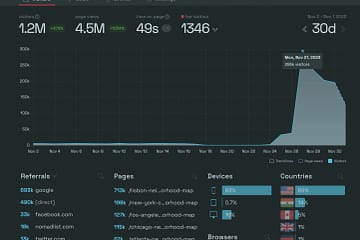Evernote became a unicorn in 2012 and was called a dead unicorn in 2015, a tag from which it never recovered. With time Evernote became the poster child of failure of the “freemium” model.
In 2012 it had 1.4M paid users out of 34M users and was valued close to a billion dollars. By 2018 paid user growth and active users had been flat for the last six years and their enterprise product offering didn’t catch on.
Even though Evernote had roughly 250M+ users, it couldn’t turn “free” users to paying ones fast enough. It wasn’t for lack of trying though.
- Evernote-branded desk accessory lines
- A messaging feature to draw more people into Evernote’s “ecosystem” and ultimately to boost paying subscribers.
- Evernote Food, a standalone app that lets users share recipes and food photos
- In-App purchases and new pricing tiers were launched designed to offer more options for non-paying users to give the company money.
But instead of focusing on its core note-taking product, Evernote spent more time on releasing a bunch of new products and features that only helped it grab news headlines
Even with multiple changes in the leadership team to realign the growth strategy and layoffs to reduce costs, somehow profitability eluded.
Ten years later after becoming a unicorn, it was acquired by a European company (Bending Spoons) which raised $340M in September 2022.
And what did Bending Spoons do?
Increased prices by 75% and laid off the entire US team.
Note: In case you are looking for a Product Management course, I would highly recommend joining this cohort-based course – ISB Executive Education – Product Management program
PS: You can connect with me for review or referral discount (link for referral discount)


